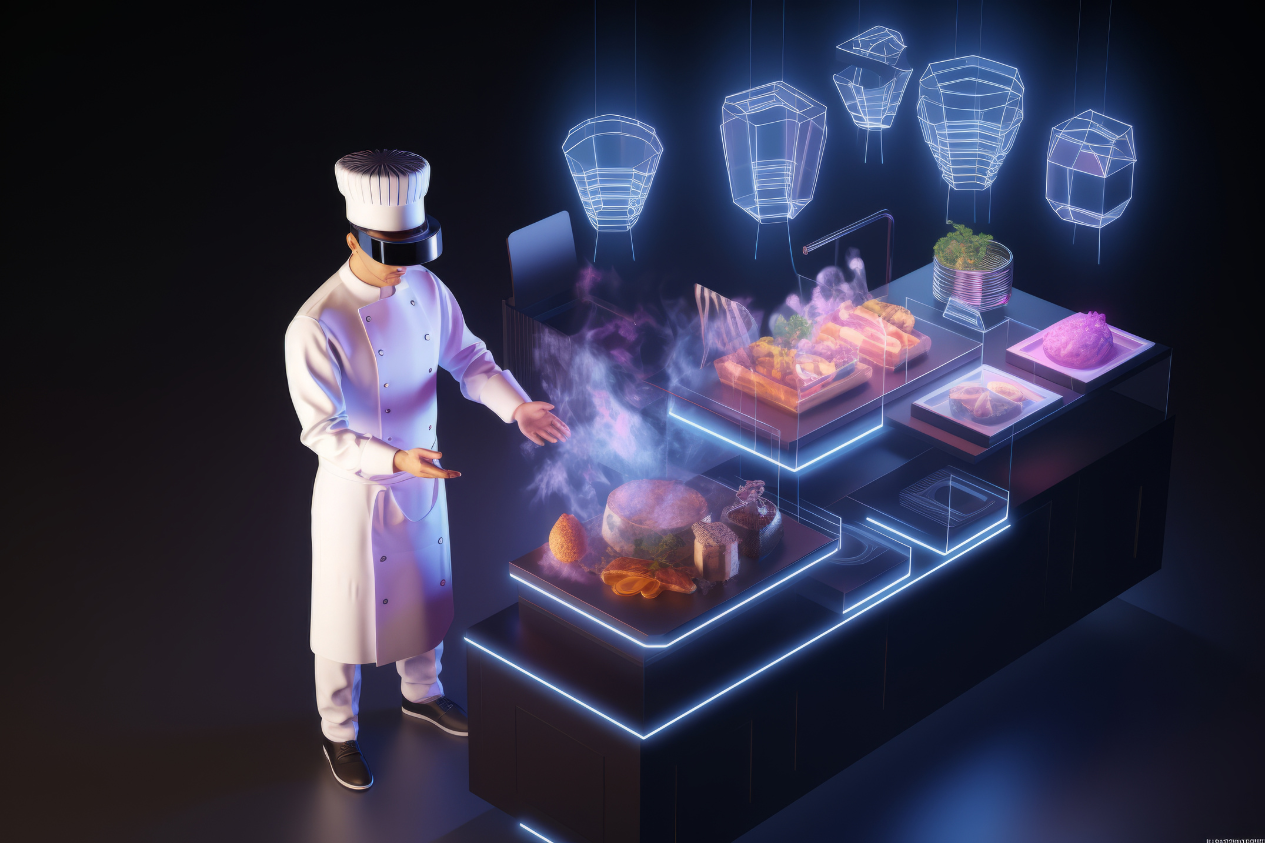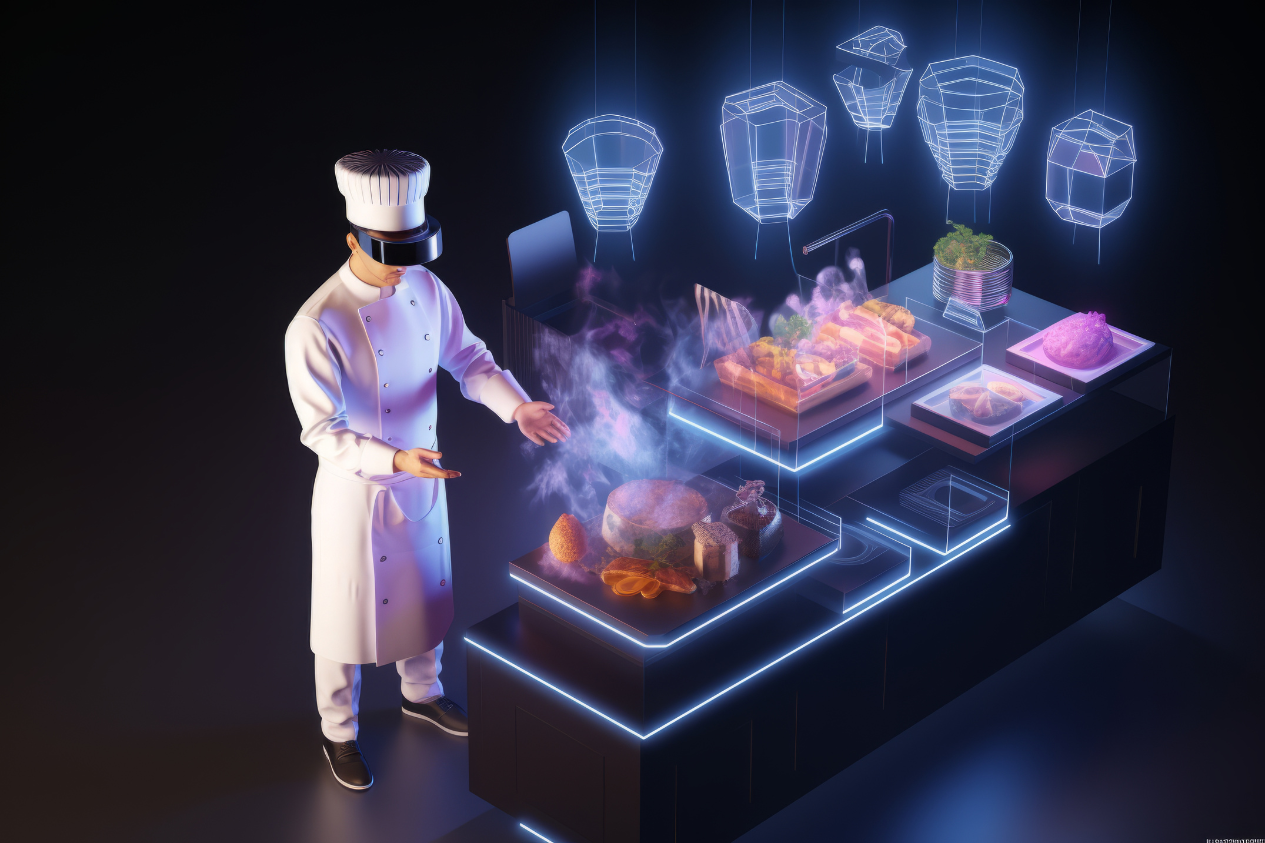
AI in Kitchens & Hotels: What the Forum Revealed About Tech Skills in Hospitalit

Artificial intelligence is already present in the front desk kiosk and on the line cook's screen, so it is no longer a far-off future in the hospitality industry. Chefs, hotel operators, technology vendors, educators, and policymakers came together at a recent industry forum devoted to artificial intelligence in the hospitality sector. One thing emerged from their discussions: although technology is changing hotel operations and kitchens, human skills required to use AI efficiently are still lagging behind. This blog summarizes the forum's findings regarding the status of tech skills in Indian hospitality, their importance, and the immediate action that industry stakeholders can take.
The new set of abilities that kitchens and hotels require
In the past, culinary skills, property management, and service manners were the main areas of focus for hospitality skill development. AI creates new and sometimes complementary skill requirements:
- Digital literacy: Line employees and supervisors now need to be at least somewhat comfortable using tablets, cloud dashboards, point-of-sale integrations, and mobile apps.
- Interpreting data: Employees need to be able to read dashboards, decipher demand projections, and follow AI's recommendations (such as dynamic pricing prompts or inventory reorder suggestions).
- Tool-specific fluency: Every vendor offers a different workflow for their products, ranging from predictive maintenance platforms to voice-activated kitchen assistants. To use them without degrading service, staff members require practical training.
- Cross-disciplinary cooperation: To preserve culinary standards and the visitor experience, managers, chefs, and tech teams must jointly design automation. That calls for a basic common vocabulary and new communication norms.
- Ethical and privacy awareness: Staff members require explicit instructions on consent, the fundamentals of data protection, and service boundaries because guest data powers personalization.
The speakers at the forum stressed that these are operational competencies that belong in training matrices alongside knife skills, not specialized "IT jobs."
Where the biggest gaps exist
Panel discussions and breakouts revealed several recurring gaps:
- The ability of middle-level managers (production heads, outlet managers) to convert algorithmic outputs into daily decisions is lacking, despite the fact that senior leadership frequently recognizes the strategic potential of AI.
- Practical technician skills: When sensors, barcode systems, and voice interfaces malfunction, chefs and maintenance personnel reported having trouble troubleshooting them, which resulted in downtime and mistrust of the tool.
- Training bandwidth: Although there are training programs, they are frequently one-time vendor sessions. It is uncommon to practice continuously using scenarios.
- Curriculum mismatch: Although technology modules are starting to be added in hospitality schools, many courses still fall behind the requirements for data literacy and real-world vendor tools.
- Language and accessibility: Technical jargon or English are frequently used in training materials; localized, vernacular training was identified as essential for widespread adoption.
These disparities are significant because improper use or adoption of AI can undermine service quality, increase waste, and irritate employees—exactly the opposite of the benefits AI is supposed to provide.
AI's practical effects when skills are present
The forum demonstrated a number of repeatable advantages when teams had the necessary expertise:
- Decreased waste: By enhancing procurement and prep scheduling, AI-enabled demand forecasting, along with employees who take the forecasts into consideration and act upon them, reduces perishable waste in kitchens.
- Quicker service: When employees trusted the systems, automated prep routing and voice-activated order entry decreased ticket times.
- Revenue optimization: Managers were able to set boundaries and decipher signals thanks to dynamic pricing and upsell recommendations, which increased average check size.
- Predictive maintenance: Skilled engineering teams scheduled preventive repairs using sensor data, preventing expensive malfunctions during periods of high occupancy.
- AI-driven guest profiles were used by front desk and food and beverage employees to provide significant personalization without coming across as scripted, but only in cases where privacy training and consent procedures were in place.
These results weren't achieved by magic; they were the result of real-world testing, change management, and iterative training.
Barriers that go beyond abilities
The forum emphasized structural obstacles that exacerbate skill gaps:
- Fragmentation and cost: Operators are overwhelmed by multiple point solutions, each of which requires a different level of training, particularly in cloud kitchens and smaller hotels.
- Interoperability and vendor lock-in: When outlets used different providers, staff had to become familiar with new interfaces due to a lack of standards.
- Cultural resistance: Some groups worry that their jobs will be replaced by automation. Adoption stalls in the absence of clear communication and role redefinition.
- Data quality: AI models are only as good as the data that feeds them; staff trust in recommendations is diminished by inconsistent menu coding, inaccurate inventory tagging, and manual overrides.
- Coordinated industry action is needed to address these issues, not just the work of individual operators.
For Educators and Policymakers
The forum emphasized the need for hospitality education to advance more quickly. Data literacy and hands-on experience with common hospitality technology should be required modules in curricula. By approving short courses and providing incentives for apprenticeships in tech-enabled hotels and kitchens, government skilling initiatives and accrediting organizations can hasten scaling.
Human Intelligence Behind Artificial Intelligence
Though technology by itself won't be beneficial, artificial intelligence is revolutionizing the operational and commercial aspects of Indian hospitality. The main takeaway from the forum is that the human factor is still crucial. The productivity, sustainability, and personalization benefits AI promises will be realized by operators who make investments in hands-on, ongoing, role-based tech training, streamline vendor landscapes, and establish cross-functional teams.
Stay connected with Foodism Connect for more such insights!
Related Blogs

Tourism Season Surge: How Travel Demand Fuels Hospitality Hiring
40 Views

Hiring for the F&B Frontier: Inside India’s Growing Bakery & Dessert Industry
40 Views
.png)
The Rise of Boutique Hotels: Recruiting for Experience, Not Size
39 Views

The Rise of Boutique Hotels: Recruiting for Experience, Not Size
129 Views

Top 5 Hospitality Roles Most in Demand This Quarter
152 Views